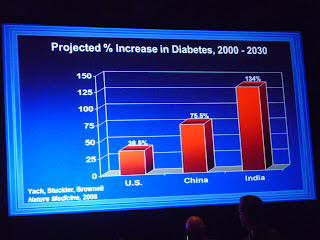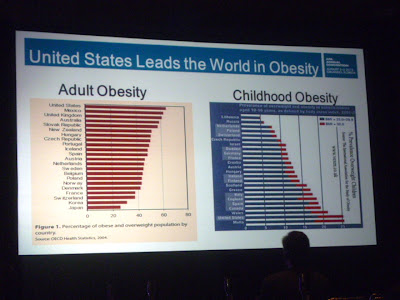COMO LA NUEVA TECNOLOGIA ESTA CAMBIANDO NUESTRAS VIDAS
Y NUESTROS CEREBROS
Por: Gary Small, MD
Director del Centro UCLA sobre Envejecimiento
Instituto Semel para Neurociencias y Comportamiento Humano
Escuela de Medicina David Geffen en UCLA
División de Psiquiatría Geriátrica
La Nueva Tecnología
y el Cerebro
Nuestro Cerebro Va
Cambiando de un Momento a Otro
Cuando miramos la pantalla de una computadora cada estímulo
sensorial provoca una respectiva reacción química en el cerebro
Estos estímulos cerebrales provocan respuestas
fisiológicas:
_ Luz hacia el ojo
_ Neurotransmisores/reacciones químicas mediante el nervio
óptico
_ Los mensajes viajan a lo largo de redes neuronales
Organización de la Red Neuronal
El cerebro pesa sólo Only 3 lbs
1,000,000,000,000,000 synapses
The Specialized Brain Perception of Image or Sensation
_ Stir intense emotional reactions
_ Jog repressed memories
_ Trigger an automatic response
New Technology and the Brain
_ Changing our lives and our BRAINS
_ Young person’s brain most sensitive and most exposed
_ digital natives
_ digital immigrants
_ Bridging the brain gap
_ Tech skills
_ Face-to-face communication skills
Brain Neural Networks
Brain Plasticity
_ Like a new computer
_ Basic programs built-in
_ Plenty of room on hard-drive for new info
_ Specialized circuits (computer “macros”)
_ Neural circuits/synapses
_ “strengthen” with use
_ “weaken” when not used
Malleable Young Brains
_ Upside – learning is fast
_ Languages
_ Musical instruments
_ Downside – still a lot to learn
_ Frontal lobe
_ Amygdala
_ By adolescence, 60% of
synapses are trimmed
away or “pruned”
Courtesy of A. Toga, P. Thompson
Brain Evolution
Major Milestone in Brain Evolution
Neanderthal
Homo sapien
Cascade of Events
_ Discovery of hand-held tool, handedness
_ Enlarged frontal lobe, goal-directed behavior
_ Grammatical language, social networking
Natural Selection
_ Charles Darwin
_ Genetic variants that adapt best to environment, most likely to survive
As Our Environment Changes, Our Brains Adapt
Is the environment really changing?
Young people between age 8 and
18 put in a total of how much tech time (computer, TV, etc.) each day?
_ 4 hours
_ 6 hours
_ 11.5 hours
_ 8 hours
Roberts DF, Foehr UG, Rideout V. Generation M: Media in the
lives of 8 – 18 year-olds. A Kaiser Family Foundation Study. 2010.
DIGITAL NATIVES:
_ Born into technology
_ 24/7 use and access
_ More technology, less direct, face-to-face social interaction
_ Brains still developing
_ Empathy, complex reasoning skills
Slow Down, Brave
Multitasker, and Don’t Read
This in Traffic
By STEVE LOHR
Published: March 25, 2007
Generation Text:
Emailing on the Go
Sends Some Users
Into Harm's Way
‘walk with ur chin @
about 45 degree angle'
By DIONNE SEARCEY
July 25, 2008
Technology and Addiction
_ Dopamine and anterior cingulate
pathways
Shopping
Virtual games
Gambling
Internet Addiction and Depression
_ Subjects: 1,319 Internet users ages 16 to 51
_ 1.2 % were classified as Internet-addicted
_ Internet-addicted group had much greater levels of depression compared to nonaddicted control group
_ Not clear whether Internet addiction leads to depression or depressed people are more likely to become addicted
Morrison CM, Gore H. The Relationship between Excessive
Internet Use and
Depression: A Questionnaire-Based Study of 1,319 Young
People and Adults.
Psychopathology 2010; Vol. 43, No. 2.
Technology and Addiction
_ E-mail as an exercise in operant conditioning
_ Study of 197 students, age range 17 to 23 yrs
_ Participants were asked to rapidly identify the emotion during facial expression morphing from neutral to angry or happy face
How Does Technology Affect Face-to-Face Social Skills?
Kirsh SJ, Mounts JRW. Aggressive Behavior 2007;33:353-358.
_ Happy faces were identified faster than angry faces
_ Playing violent video games reduced this happy face advantage
Video Game Play Impacts Facial
Emotion Recognition
Kirsh SJ, Mounts JRW. Aggressive Behavior 2007;33:353-358.
_ Computer use associated with ADHD in elementary school children
_ > 1 hr video games per day
_ Increases symptoms of ADHD
_ Lowers overall GPA
_ BUT cause and effect relationship not certain
Technology and Attention Deficit
Chan & Rabinowitz. Ann Gen Psychiatry 2006;5:16; Yoo et
al. Psychiatry Clin
Neurosci 2004;58:487-94.
lol Laugh out loud
U R 2 Old (Or R U?)
gma Great minds think alike
gal Get a life
prw Parents are watching
:- ) Happy Face
Emoticons
=:-O Startled
5:- ) Elvis Presley
//0-0\\ John Lennon
Sentences and Emoticons Activate Different Brain Regions
Yuasa et al. Emoticons convey emotions without cognition of facers: An fMRI study.
Decline in Reading Time
_ Since 1982, literary reading has declined by
28% in 18-to-34-year-olds
_ Daily newspaper reading is dropping rapidly
_ Print magazines are getting thinner
National Endowment for the Arts. Reading at risk:. Wash.,
DC, June, 2004;
Patterson . Young people and news., Harvard University.
July, 2007.
Kids Reveal Themselves Online
_ More than half of teens mention drugs, alcohol, sex or violence on their MySpace or Facebook pages
_ Risks:
_ Online predators
_ Rejection by college or business recruiters
Moreno M, et al. Arch Pediatr Adolesc Med.
2009;163:27-34.
Reducing Social Networking Risks
_ The following message was sent to 190 “at-risk” teens
_ “You seemed to be quite open about sexual issues. Are you sure that’s a good idea? After all, if I could see it, nearly anybody could.”
_ 14% of teens who received the email eliminated sexual references from profiles vs. 5% of those who did not receive it
Moreno M, et al. Arch Pediatr Adolesc Med.
2009;163:35-41.
Technology and Education
_ 97% of teens play video games (Pew Internet Study)
_ Cognitive effects – action gamers can improved focused attention distractions
_ New videogames build in reading incentives – players advance by answering questions with information from a novel
_ MacArthur Foundation – funding games design to promote learning
October 6, 2008
THE FUTURE OF READING
Using Video Games as Bait to Hook Readers
Technology Use and Physical Activity
_ Study of 2500 teens
_ Increased use of computer and TV associated with less time in physical activities
_ Five-year follow-up – sedentary behaviors and technology time increased by nearly 50% from early- to
mid-adolescence
Nelson et al. Pediatrics 2006;118:e1627-34.
Technology and the Fractured Family
DIGITAL IMMIGRANTS
_ Learn technology later in life
_ Older brains may be slower
_ Reaction time, memory, motor function Slower to
embrace innovation
_ Resistance to technological innovation
DO YOU REMEMBER . . .
_ the first time you watched color TV?
_ when you really dialed a number?
_ the IBM Selectric typewriter?
DO YOU REMEMBER . . .
_ your first mobile phone?
_ the first video game?
_ 3-5 times
_ 5-10 times
_ More than 10
Digital Immigrants:
How many times a day do you check your email?
Effect of Technology on the Brain:
Computer Use According to Age
Regression of surface projections of FDDNP-PET scans of 20 subjects (8 controls, 6 MCIs, 6 ADs)
More Protein
Less Protein
Memory Score
FDDNP Shows Full Picture of
Progression of Neurodegeneration
New Technology and Creativity
_ Accelerating pace of life is reducing the time for thoughtful reflection
_ Ironically, computers, e-mail, & Internet were developed so scholars could readily access information and research results in order to free up time for creative thought
Your Brain on Google
UCLA Study of the Effects of Internet Searching on Neural Circuitry
Your Brain on Google: Patterns of Cerebral
Activation During Internet Searching
_ Investigators:
_ Gary Small, Teena Moody, Prabha Siddarth, Susan Bookheimer
_ Funding:
_ Parvin Foundation
_ Published this month in:
_ American Journal of Geriatric Psychiatry
2009;17:116-126
Study Methods
_ Recruit middle-aged and older people with minimal Internet experience
Subject Groups
Net Naïve
(N=12)
Net Savvy
(N=12)
Average age (yrs) 65 62
Education (yrs) 18 17
% Female 92% 75%
Frequency of computer use* 1.9 ± 0.9 4.5 ± 1.2
Frequency of Internet use* 1.2 ± 0.4 4.5 ± 1.2
Self-rating of Internet expertise* 1.2 ± 0.1 3.6 ± 0.5
*P < .001
Functional MRI
Stimulation Tasks During fMRI
Paying attention Reading a text page
Stimulation Tasks During fMRI
Internet search page Internet information page
Your Brain on Google
Text Internet
Net Naive
Net Savvy
Internet Savvy Volunteers
Your Brain oRne aGdoinog lae Book
Brain Circuit Activation After Seven
Hours of Internet Searching
Moody et al. Neural activity patterns in older adults following
Internet training.
Society for Neurosciences. 2009.
Time
Brain Activation
Cognitive
efficiency with
task repetition
Neural Network Responses to Mental
Challenge
Unfamiliar
task
Task strategy engagement
Calisthenics for the Older Mind
Is Technology Weakening Your Memory Ability?
_ How many phone numbers do you know by heart?
_ Does relying on your PDA shrink your hippocampus?
818-555-1234
800-555-8000
212-555-8787
We Can Use Technology to Assist Our Memory Capacity
_ Pick & choose what we commit to brain memory storage
_ Use your brain for names & faces
_ Use your PDA for birthdates & anniversaries
LUCY
Technology Can Train Our Brains
_ Surgeons who play video games make fewer surgical errors
_ Improved visual attention and reaction time
Rosser et al. Arch Surg 2007;142:181-6; Green &
Bavelier. Nature
2003;423:534-7.
Off-Line Brain Training
Finding Balance to Bridge the Brain Gap
_ Upgrade tech skills of immigrants
Finding Balance to Bridge the Brain Gap
_ Improve social skills of natives
Dalton et al. Biol Psychiatry. 2007;61:512-20.
Combining Brain Exercise With Other Healthy Lifestyle Strategies
_ Physical condition
_ Diet
_ Relaxation techniques
_ Social networking
Find Time Off-Line
Managing the Technology To Preserve Our Humanity
The Future Brain
_ Brain-computer interface technologies allow mental control of computer keyboard or mouse
_ Human volunteers have been able to mentally type into a computer 15 words/min
Scherer et al. The self-paced Graz brain-computer interface:
Methods and
applications Comput Intell Neurosci. 2007; 2007: 79826.
Brain-Computer Interface Technology
The Future Brain
Repetitive Transmagnetic Stimulation (rTMS)
_ Used to treat psychosis and depression
_ In 2008, the FDA cleared rTMS for treating major depression in patients who do not respond to other treatments
_ 10 to 20 successive treatments over 2 to 4 weeks
Fitzgerald et al. Psychol Med 2010; Oct 7:1-10.
Deep Brain Stimulation
• Used for obsessive compulsive disorder
• Delivers electrical stimulation to targeted brain areas
• Surgically implanted, battery-operated device
• Similar to a heart pacemaker
• About the size of a stopwatch
New Mothers’ Response to Babies
BLUE AREA = mother watching someone else’s infant
RED AREA = mother watching her own infant
Functional MRI Terry Oakes, Lab for Affective Neuroscience,
UW-Madison
Can Computers Read Our Minds?
Computer Trained to “Read" Volunteer’s Mind
Work by Tom Mitchell and Marcel Just at Carnegie Mellon
University, Pittsburgh, PA
• New cellphone apps for long-distance psychotherapy
• Used in treating addiction, memory loss, anxiety disorders
• Skin-conductance anklet that transmits signals when patient experiences anxiety
Tele-Mental Health
Stigma of Psychiatry
• Recent Indiana University survey of > 2,000 people
• 60% not willing to work closely with someone with schizophrenia
• 70% wouldn’t want to work with an alcoholic
Conclusions
_ Technology is not only changing our lives, it’s changing our BRAINS now and will in the future
_ The new generation gap is a brain gap
_ We can find balance in our lives and bridge the brain gap
_ by improving technology and social skills
_ knowing when to use them






























































